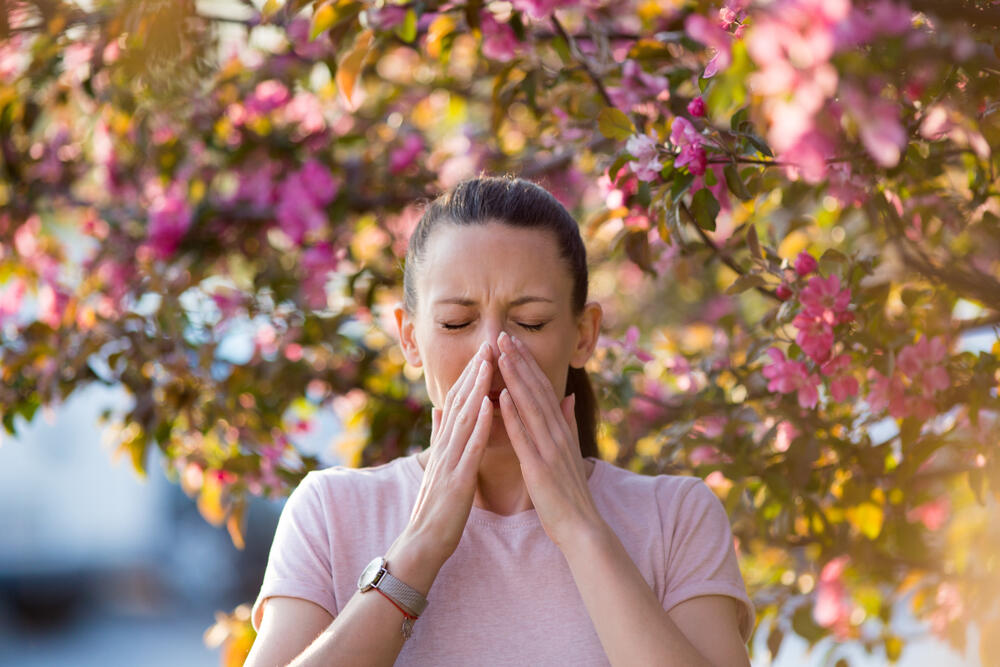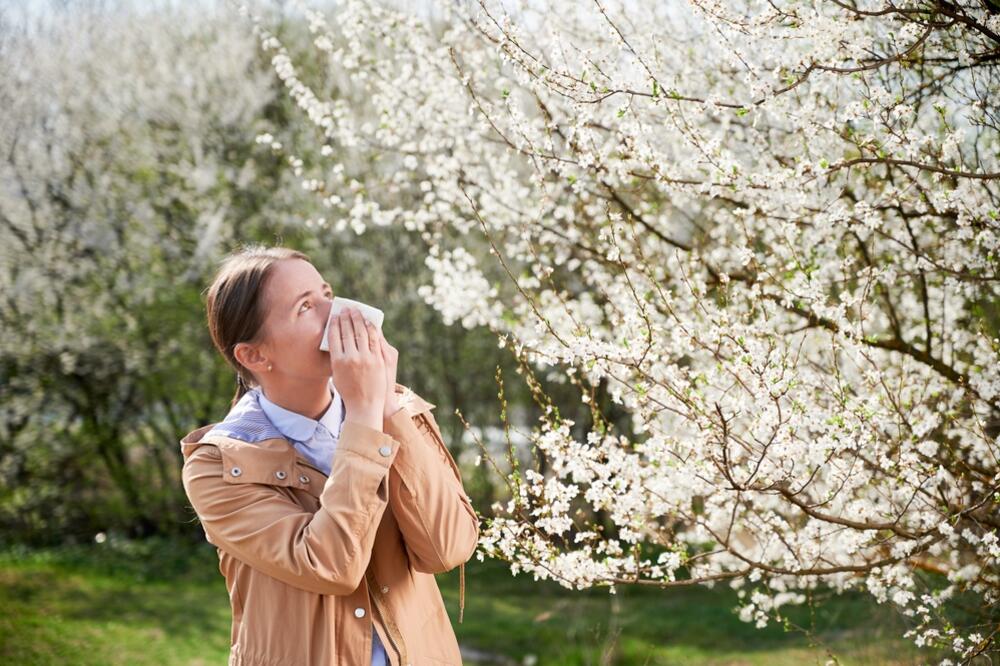Due to climate change, the allergy season is starting earlier than it used to be, which is not good for those suffering from pollen allergies, of which there are more and more. Epidemiological studies from around the world have shown that 25 percent of the world's population is allergic, with a tendency to increase regardless of age, race and social status. The warming of the planet has also led to an extended period of time, usually in spring, when plants, trees and grasses release pollen.
According to research published in the Proceedings of the National Academy of Sciences, the pollen season has increased by as much as 20 days over the past thirty years, and the pollen released by plants is also more intense than, say, 1990. One of the most invasive plants is ragweed, it grows like a weed, is extremely adaptable, fruitful and resistant, and its pollen is considered the strongest natural allergen in our climate.
Climate changes
Climate change has also led to ragweed blooming earlier, staying longer and causing problems for sensitive people from June to November. Even in 20-35 percent of people, a cross-reaction develops - the possibility of developing multiple hypersensitivity, a prolonged period of hypersensitivity - ragweed with wormwood, dandelion, sunflower, herbs, birch, cucumber, zucchini, artichoke, melon, watermelon, banana, mango, tea from chamomile, hibiscus tea and sunflower seeds.
More and more aeroallergens
"Our winters are getting warmer, our springs are getting warmer and earlier, which is having a bigger impact than we may be aware of. This is a really clear example that climate change is already here, and the health impacts are likely to get worse," says William Anderegg, a scientist from the University of Utah, for The Guardian. In addition to causing seasonal allergies in some people, causing sneezing, itching, burning, red eyes, and runny noses, the tiny grains of pollen that plants release to reproduce can also worsen other conditions, such as asthma, and such diseases are associated with worse school and work results, he reports Gloria

.
"As the climate continues to change, the number of cases of asthma and allergies due to aeroallergens is expected to increase," says Kristie Eby, an epidemiologist at the University of Washington. While the methods of treating allergies are improving, the most reliable way is to avoid allergens, but since this is not always possible, it is best to consult a doctor for help. Therapy is usually started before pollen hits, but here's what can help at the last minute before pollen allergy season hits.
Take a probiotic more often
Keeping your gut flora healthy can help your immune system better deal with allergens. It is also known that some common types of food can lead to an imbalance of immunity, and the most common are gluten, dairy products and sugar. Try to include more vegetables, fruits, healthy fats such as olive oil, whole grains in your diet, and reduce carbonated and alcoholic beverages, caffeine, processed foods and sweets. In the pharmacy, find out about the probiotic that you can take for a while. Probiotics are also found in yogurts and fermented foods such as sauerkraut and kombucha tea. Almost all research has revealed the benefit of taking probiotics, but it is still being investigated which strain or combination and in what dose have a therapeutic effect.
Vitamins and minerals
Certain vitamins and minerals can also help suppress an allergic reaction. Vitamins D, C, A, omega-3 fatty acids and quercetin are recommended. Quercetin is an antihistamine that reduces pro-inflammatory cytokines and prevents the formation and release of histamine and other inflammatory substances. It is found in larger quantities in black and green tea, broccoli, ginger, red onion, pepper, grapes and berries. Omega-3 fatty acids in fish, flax, hemp and chia seeds, walnuts, have strong anti-inflammatory properties that will help suppress allergic reactions. In the therapy of all types of allergies, calcium is inevitably used. It reduces capillary permeability and thus alleviates the allergic reaction.
Windows
Air filtration inside the home can eliminate pollen particles. Look for a quality air filter (HEPA) that removes almost all airborne particles. Another simple step - close the windows in your home when the pollen level increases in your area, which you can track through the pollen calendar and measuring stations that regularly publish this data on the Internet.

For
Inhaling the steam of mint tea will also contribute to the relief of unpleasant symptoms such as a stuffy nose. Lean your head over a cup of hot tea, cover your head with a towel and stay like that for ten minutes. Otherwise, steam works as one of the best home remedies for seasonal allergies. Add a few drops of eucalyptus or lavender essential oils to the hot water for inhalation.
Showering
Be sure to take a shower, especially before going to bed, to wash off all the allergens. During the day, pollen will collect not only on your clothes, but also, for example, in the areas of your ears, hair, eyebrows... If you take it to bed, you will worsen itchy eyes and nasal congestion, and you will not get a good night's sleep, which over time will damage your immunity and you will fall into a vicious cycle of long-term symptoms, advises the Cleveland Clinic.
Nettle tea
Nettle is a natural antihistamine, so it is considered an effective ally in the fight against respiratory problems and pollen allergies. Medicinal compounds in nettle work by blocking the signals that prompt cells to secrete histamine. By drinking nettle tea, you will relieve symptoms such as runny nose, itchy eyes and sneezing, which are the result of inflammatory processes and histamine release. You can drink nettle tea two to three times a day, or you can use nettle tincture. For allergy prevention, it is recommended to drink 20-30 drops a day in water or juice, while for treatment, 20-30 drops are used two to three times a day.
Keep the house clean
It is one of the best ways to avoid indoor allergens. Keep in mind that even harsh chemicals can irritate your nasal passages and make your symptoms worse. Better to make natural cleaners with ingredients like vinegar, baking soda, and lemon. Also, it is good to know that washing bedding once a week at a temperature of 60 degrees can reduce exposure to pollen allergens. Also, change your clothes when you get home in case the allergens get caught on your clothes.
Bonus video:





